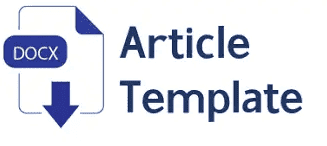Adaptive Governance Strategy to Reduce Flood Risk in the Ganges River, North India
DOI:
https://doi.org/10.71435/639061Keywords:
Flood Risk Perception , Adaptive Governance , Community Resilience , Ganges RiverAbstract
Purpose: This take a look at examines the dynamics of flood chance perception, adaptive governance effectiveness, and community resilience along the Ganges River in North India, focusing on the village of Kalapathar.
Subjects and Methods: Through regression, ANCOVA, and correlational analyses, the studies explore the relationships between these key variables and their implications for flood resilience strategies.
Results: Findings highlight the great impact of flood chance notion on community resilience and the high-quality correlation among adaptive governance effectiveness and resilience.
Conclusions: The take a look at underscores the significance of addressing perceptions of chance, enhancing governance mechanisms, and fostering community resilience to mitigate flood affects in prone regions.
References
Agrawal, N., Elliott, M., & Simonovic, S. P. (2020). Risk and resilience: a case of perception versus reality in flood management. Water, 12(5), 1254. https://doi.org/10.3390/w12051254
Anderson, B. (2020). The Book of Awesome Women Writers: Medieval Mystics, Pioneering Poets, Fierce Feminists and First Ladies of Literature. Mango Media Inc.
Folke, C., Hahn, T., Olsson, P., & Norberg, J. (2005). Adaptive governance of social-ecological systems. Annu. Rev. Environ. Resour., 30(1), 441-473. https://doi.org/10.1146/annurev.energy.30.050504.144511
Fransen, J., Hati, B., Simon, H. K., & van Stapele, N. (2024). Adaptive governance by community based organisations: Community resilience initiatives during Covid‐19 in Mathare, Nairobi. Sustainable Development, 32(2), 1471-1482. https://doi.org/10.1002/sd.2682
Ghasemzadeh, B., Zarabadi, Z. S. S., Majedi, H., Behzadfar, M., & Sharifi, A. (2021). A framework for urban flood resilience assessment with emphasis on social, economic and institutional dimensions: A qualitative study. Sustainability, 13(14), 7852. https://doi.org/10.3390/su13147852
Imasiku, K., & Ntagwirumugara, E. (2020). An impact analysis of population growth on energy‐water‐food‐land nexus for ecological sustainable development in Rwanda. Food and Energy Security, 9(1), e185. https://doi.org/10.1002/fes3.185
Jafino, B. A., Kwakkel, J. H., & Taebi, B. (2021). Enabling assessment of distributive justice through models for climate change planning: A review of recent advances and a research agenda. Wiley Interdisciplinary Reviews: Climate Change, 12(4), e721. https://doi.org/10.1002/wcc.721
Kavesh, M. A., & Fijn, N. (Eds.). (2023). Nurturing Alternative Futures: Living with Diversity in a More-than-Human World. Taylor & Francis.
Lash, J. P. (2021). Roosevelt and Churchill, 1939-1941: The partnership that saved the West. Plunkett Lake Press.
Mashi, S. A., Inkani, A. I., Obaro, O., & Asanarimam, A. S. (2020). Community perception, response and adaptation strategies towards flood risk in a traditional African city. Natural Hazards, 103(2), 1727-1759. https://doi.org/10.1007/s11069-020-04052-2
Mehta, L., Srivastava, S., Adam, H. N., Alankar, Bose, S., Ghosh, U., & Kumar, V. V. (2019). Climate change and uncertainty from ‘above’and ‘below’: perspectives from India. Regional Environmental Change, 19, 1533-1547.
Naik, P. K., Mondal, K. C., Naik, P. K., Prasad, G., & Gupta, P. (2023). Subsurface Geophysics and Hydrogeology at the Gun Carriage Factory, Jabalpur, Madhya Pradesh, India. Journal of the Geological Society of India, 99(11), 1595-1603. https://doi.org/10.1007/s12594-023-2511-x
Nichols, A. M., & Bauman, W. A. (2022). The Watery Depths of American Environmentalism: Marjory Stoneman Douglas, Rachel Carson, and Sylvia Earle. Journal for the Study of Religion, Nature & Culture, 16(3).
Paszkowski, A., Goodbred Jr, S., Borgomeo, E., Khan, M. S. A., & Hall, J. W. (2021). Geomorphic change in the Ganges–Brahmaputra–Meghna delta. Nature Reviews Earth & Environment, 2(11), 763-780. https://doi.org/10.1038/s43017-021-00213-4
Pieraccini, M. (2019). Towards just resilience: representing and including new constituencies in adaptive governance and law. Journal of Environmental Law, 31(2), 213-234. https://doi.org/10.1093/jel/eqz002
Pius, T. K. (2023). Auguries of apocalypse: treatment of climate change in the novels of Margaret Atwood, Barbara Kingsolver and Lorin R Robinson (Doctoral dissertation, Research and Post Graduate Department of English, St. Aloysius College, Thrissur).
Prabhakar, S. V. R. K., Shimizu, N., & Lee, S. Y. (2024). Equity and Fairness in Community Based Adaptation and Disaster Risk Reduction. In Disaster Risk and Management Under Climate Change (pp. 369-390). Singapore: Springer Nature Singapore.
Scarlett, L. (2013). Collaborative adaptive management: challenges and opportunities. Ecology and Society, 18(3).
Sen, J. (2022). A Deep Ecological Exploration of Indian River Systems: Review of Its Cultural Landscape and Triveni Sangam Case. Riverine Systems: Understanding the Hydrological, Hydrosocial and Hydro-heritage Dynamics, 309-324. https://doi.org/10.1007/978-3-030-87067-6_17
Smith, Z. A. (2006). Adaptive Governance: Integrating Science, Policy, and Decision Making and Swimming Upstream: Collaborative Approaches to Watershed Management. Perspectives on Politics, 4(1), 176-177. https://doi.org/10.1017/S1537592706400141
Triyanti, A., Hegger, D. L., & Driessen, P. P. (2020). Water and climate governance in deltas: On the relevance of anticipatory, interactive, and transformative modes of governance. Water, 12(12), 3391. https://doi.org/10.3390/w12123391
Wang, Z., Chu, E., & Hao, Y. (2024). Towards sustainable development: How does ESG performance promotes corporate green transformation. International Review of Financial Analysis, 91, 102982. https://doi.org/10.1016/j.irfa.2023.102982
Xie, Z., & Peng, B. (2023). A framework for resilient city governance in response to sudden weather disasters: A perspective based on accident causation theories. Sustainability, 15(3), 2387. https://doi.org/10.3390/su15032387
Zhang, Z., Hu, B., & Qiu, H. (2022). Comprehensive evaluation of resource and environmental carrying capacity based on SDGs perspective and Three-dimensional Balance Model. Ecological Indicators, 138, 108788.






